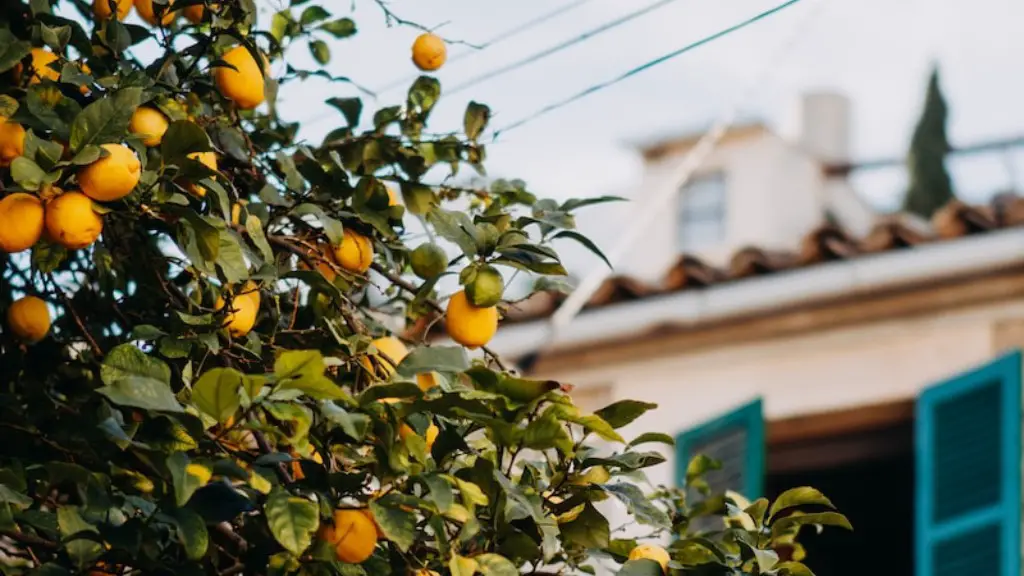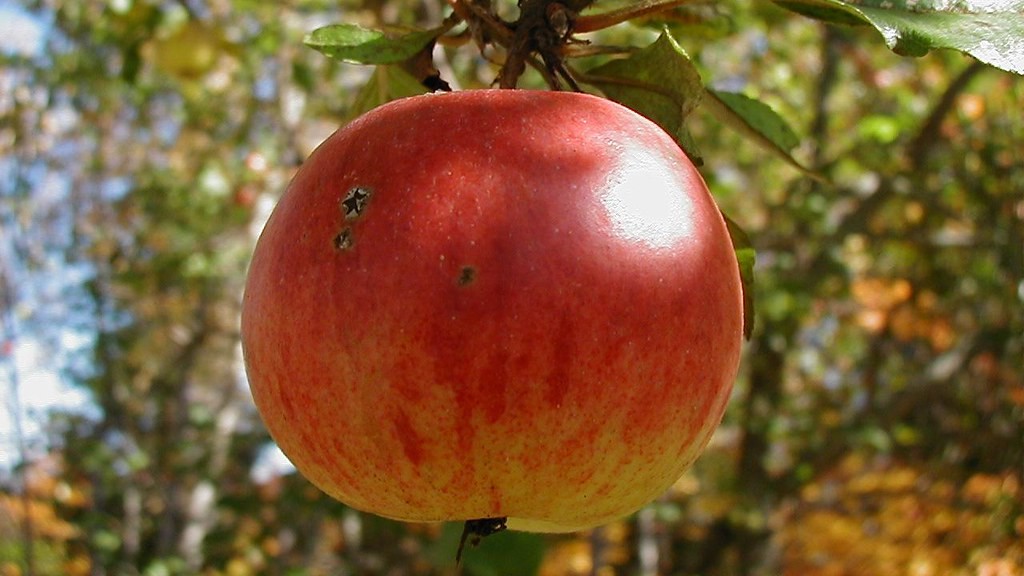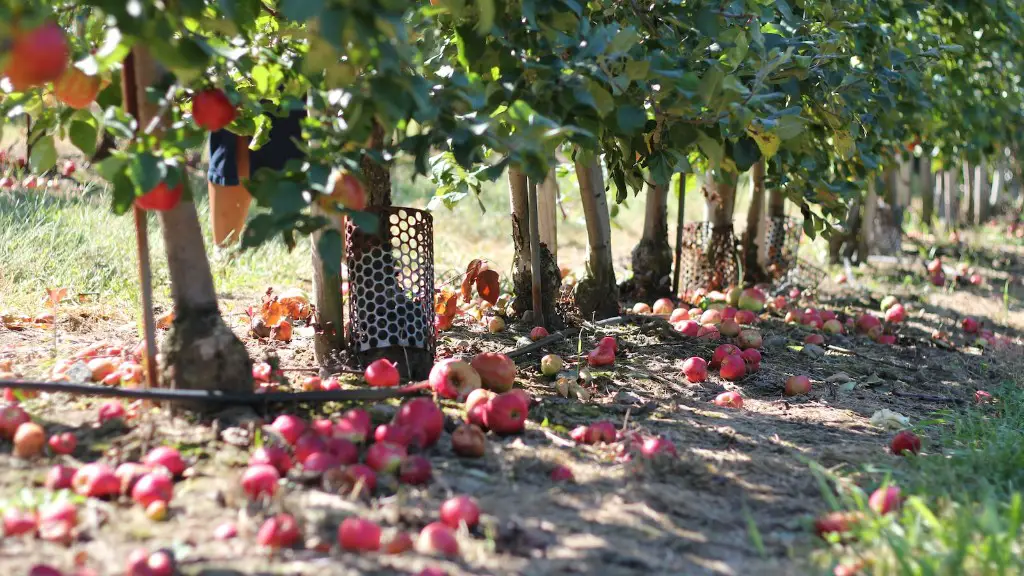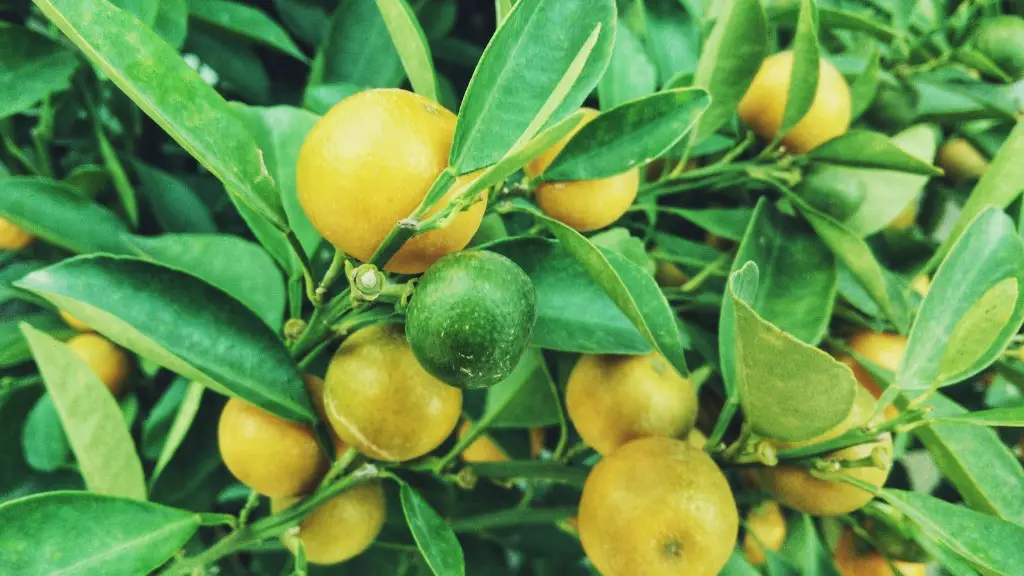Can You Plant a Lemon Tree From Lemon Seeds?
One of the most popular trees to grow in a home garden is the lemon tree, but can it be grown from lemon seeds? Although lemon seeds are viable, planting lemon seeds is generally not recommended due to how long it takes for a plant to fruit from a seed, as well as the uncertainty of the resulting fruit.
For the most part, lemon trees are propagated through a process called grafting. During grafting, a piece of an existing lemon tree is grafted onto new rootstock, which allows for a much quicker fruiting of edible lemons. The process begins by selecting a scion, which will be grafted onto the rootstock. Cuttings are made from an existing mature lemon tree with a sharp grafting knife. The rootstock is also prepared by cutting and shaving with a knife.
The two pieces of the lemon tree are grafted together by tying or attaching in some way to form a union. After grafting is successful, the new lemon tree is usually of the same variety as the mother tree, meaning the same fruit is easily reproduced. To increase the success of grafting, soil conditions must be monitored. If the soil is too wet, too dry, too high in Ph, or too low in Ph, this can affect the success of grafting.
Although some plants such as tomatoes and peppers can be grown from seed, the success rate with lemon trees is lower and the process takes considerably longer. Lemon seeds can take many months to germinate, and even then, the resulting tree is uncertain, as most hybrid citrus plants don’t produce true-to-type fruit. If you want a lemon tree that is sure to produce viable fruit, stick with the tried and true method of grafting.
Grafting lemon trees is the most effective and efficient way of producing a lemon tree. It takes a bit of practice to get the technique right, but the result is a lemon tree that will provide abundant delicious lemons in a very short period of time. It’s cheaper than buying a tree from a nursery, and you can have up to a dozen additional lemon trees from a single mother tree. So, if you’re looking for a lemon tree to add to your garden, it’s best to go with grafting.
Uses for the Zest of Lemons
Lemons have gained immense popularity over the years, largely due to the unique and versatile flavors their zest gives to a variety of recipes. Even though lemons are best enjoyed when their juice is squeezed, the zest of a lemon can be used to add a tanginess and zing to dishes. Not to mention, zest is an excellent way to incorporate a significant amount of antioxidants and vitamins into your diet. Here are a few ways you can use the zest of lemons in your cooking.
One of the most classic uses for the zest of lemons is to make a signature lemon cake or cupcakes. The zest of the lemon will add tartness to the sweetness of the cake or cupcakes, making them a heavenly dessert. In addition, it is a great way to use up extra lemons, as it won’t take many to make a large batch of treats. Another way to use lemons is to make a lemon-flavored cookie dough. The zest gives the cookie dough a light and vibrant flavor, elevating the taste of your cookies.
The zest of lemons is also an excellent flavor enhancer for savory dishes. You can add a sprinkle of the zest to sauces and vinaigrettes to give them a zesty and fresh kick. It is also a great way to add flavor and life to roasted vegetables or in an omelet. You can also add the zest to baked fish for a lemony finish, or to chicken for a unique and delicious taste profile.
Lemon zest also makes a wonderful addition to cakes, icings, and custards, as well as soups, stews, and salads. Additionally, you can use it to make a lemon-infused syrup that can be used to top your favorite desserts or even mixed into cocktails. And last, but not least, lemon zest is an Essential Oil and is used for various aromatherapy, spa treatments, and perfumes.
How to Identify a High-Quality Lemon
To be able to enjoy the best-tasting and juiciest lemons in all your recipes, it is important to know what characteristics make a high-quality lemon. Here are few tips to help you identify a good-quality lemon when shopping:
The first consideration is to look for a lemon that is heavy for its size. This means that there is a lot of juice in it and it will be very juicy. Additionally, a high-quality lemon should be bright yellow in color and free from any blemishes or mold spots. Be sure to smell it too as a good-quality lemon should have an intense and pleasant lemon aroma.
Also, look for firm lemons with a texture that is neither too soft nor too hard. Soft lemons may already be starting to spoil, while hard lemons are an indication that the lemons are not yet ripe. To get the most juice from the lemon, you can gently roll it on the counter before cutting it open.
When it comes time to cut the lemons open, make sure to cut near the center and avoid cutting off the stem as this could cause the lemon to dry out quickly. Always check the juice of the lemon as it should be clear and tart in taste. If it is cloudy, brown or overly sweet, this is an indication of a poor-quality lemon that is likely to rot quickly or won’t be very flavorful in your recipes.
Advantages and Disadvantages of Growing Lemon Trees
Growing lemon trees is a popular way to add flavor to your recipes and is a great hobby for gardeners. While it can be rewarding, there can also be some drawbacks when it comes to growing lemon trees. Here are a few advantages and disadvantages to consider before deciding whether or not to grow a lemon tree.
One of the main advantages of growing lemon trees is the abundance of sweet and juicy lemons that can be enjoyed year round. This makes it easy to access fresh lemons for countless recipes, or even create homemade lemonades, without ever having to leave the house. Not to mention, lemons are also high in vitamin C, antioxidants, and control blood sugar levels while adding a burst of flavor to meals.
Growing lemon trees can also have a few drawbacks. The biggest issue is pests, as lemon trees are very susceptible to pests such as aphids, scales, and aphids. Additionally, depending on your area, you may need to bring your lemon tree indoors over winter to protect it from frost and cold temperatures. Also, if you live in a cold climate, you may need to wait some time for the lemons to ripen as the late frost can delay ripening.
Overall, growing lemon trees is a great way to enjoy a high-quality and abundant supply of lemons. You just need to be aware of the necessary amount of care and attention required to ensure the lemon tree stays healthy throughout the growing season. With the right amount of care and attention, the harvest of sweet and juicy lemons can be plentiful and rewarding.
How to Care for a Lemon Tree
Caring for a lemon tree is easy but will require some knowledge of the proper techniques and practices. If not done correctly, it could lead to dead or sickly plants and a poor-tasting harvest. So, here are few tips to help you care for your lemon tree.
The most important thing for lemon trees to thrive is plenty of sun. The ideal amount of sun for a lemon tree is 8 to 10 hours a day. This light should be evenly distributed throughout the day to ensure that the plant gets plenty of energy. If you’re in a climate with cooler temperatures, you will need to take extra steps, such as covering the lemon tree, in order to ensure that it still gets enough sunlight.
In addition to light, lemon trees also need consistent and adequate watering. The soil should remain moist and not too wet. It’s best to water the lemon tree in the morning, or early afternoon, when the sun is up and the soil has had a chance to heat up a bit. This will help prevent the roots from sitting in cold damp soil, which can lead to root rot.
Fertilizing is a great way to give the lemon tree a boost of nutrition and help promote healthy and abundant growth. Apply a balanced fertilizer every 6-8 weeks during the active growing season, and never fertilize a dry tree or a tree without leaves. Also, lemon trees should be pruned annually to remove dead limbs, maintain their shape and size, and increase the amount of air circulation.
Finally, you should keep an eye out for any pest or disease that might be attacking your lemon tree and take measures to treat them immediately. There are many over-the-counter products that can be used for pest control, as well as natural home remedies for most common pests and diseases.





